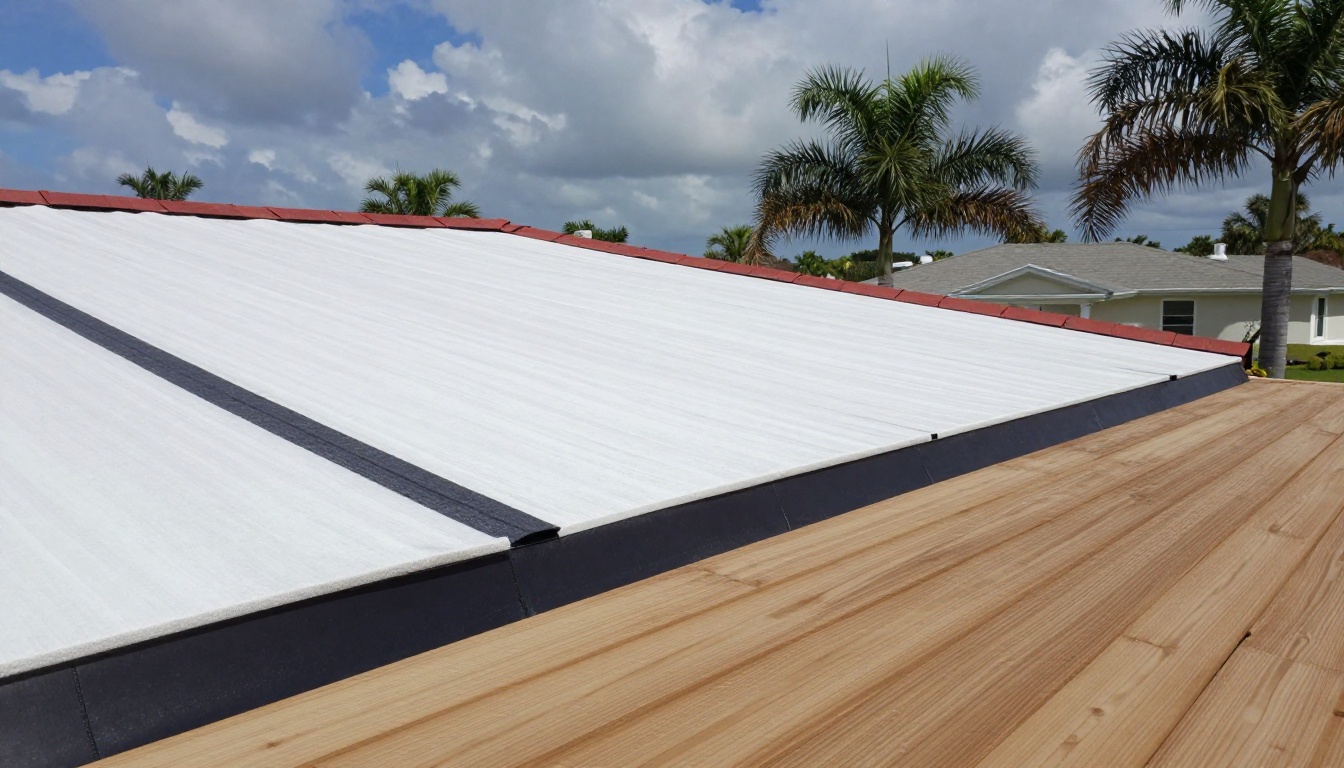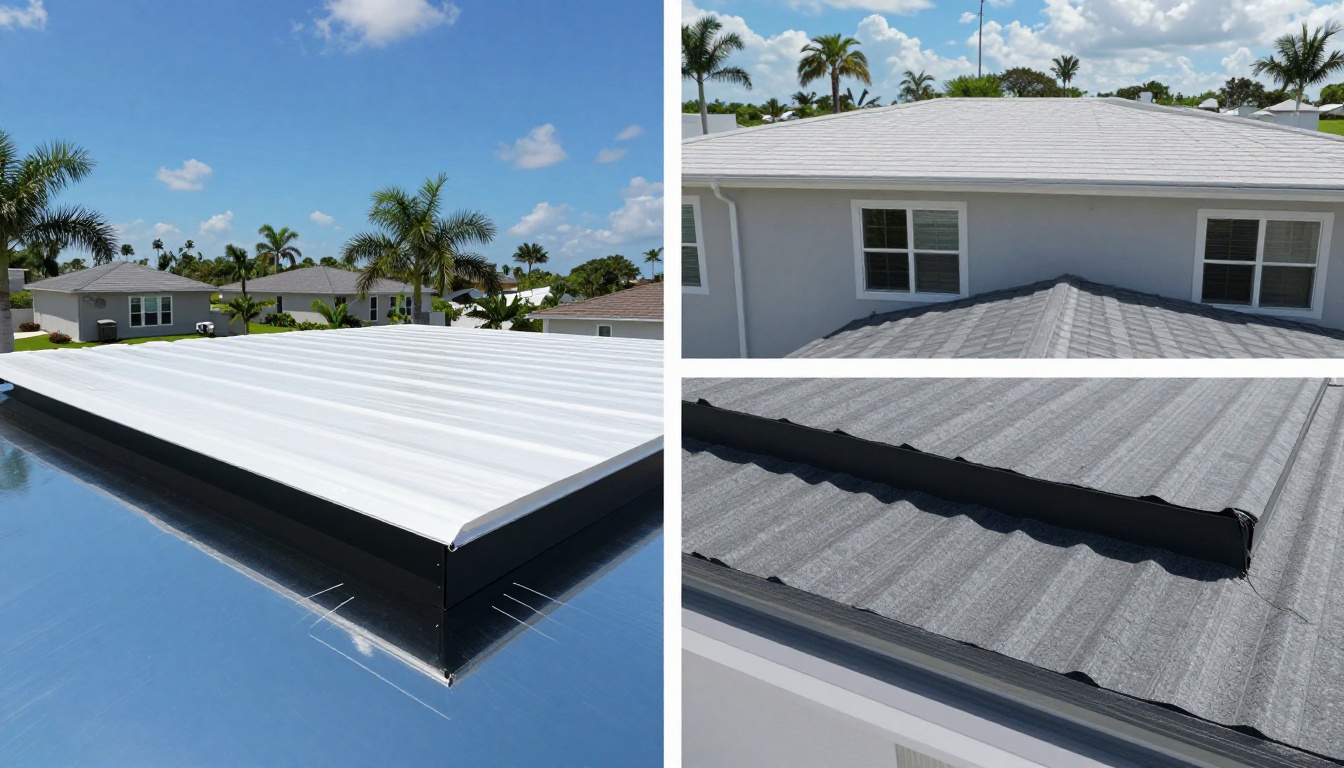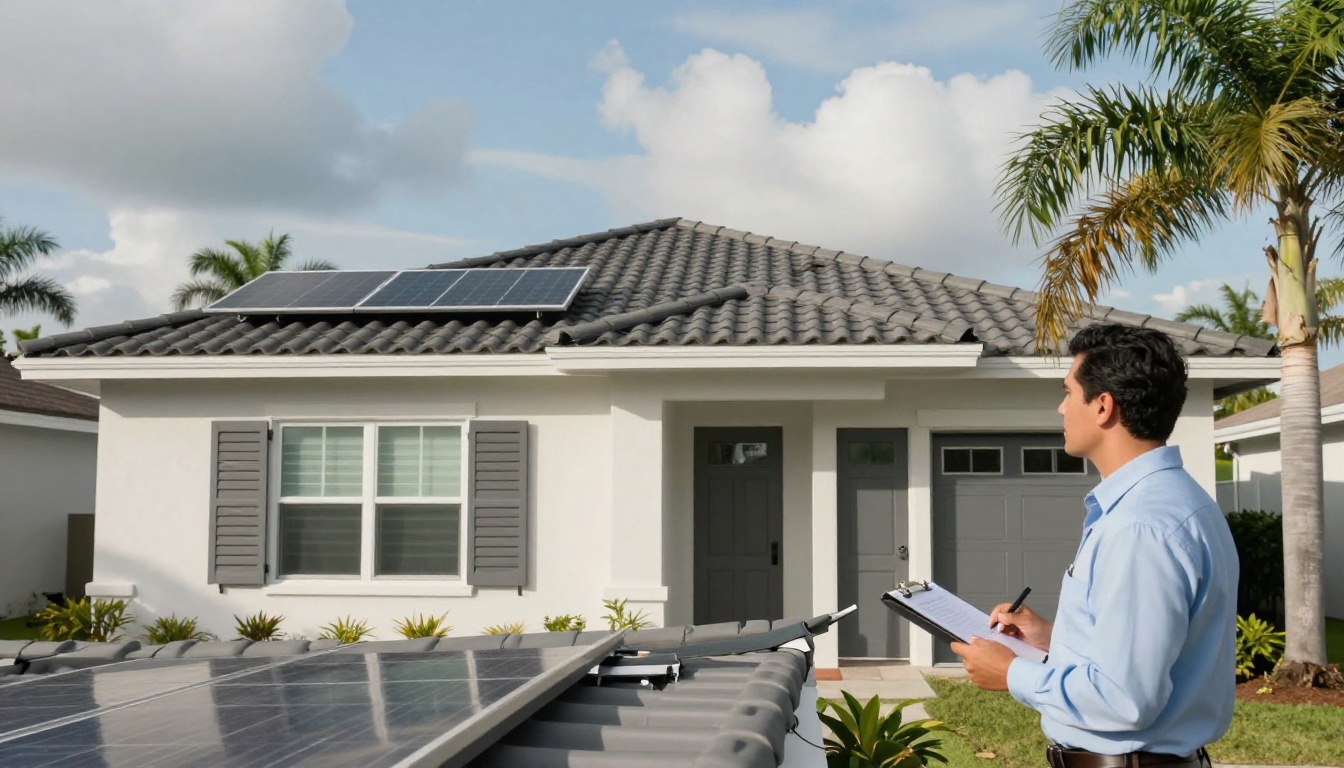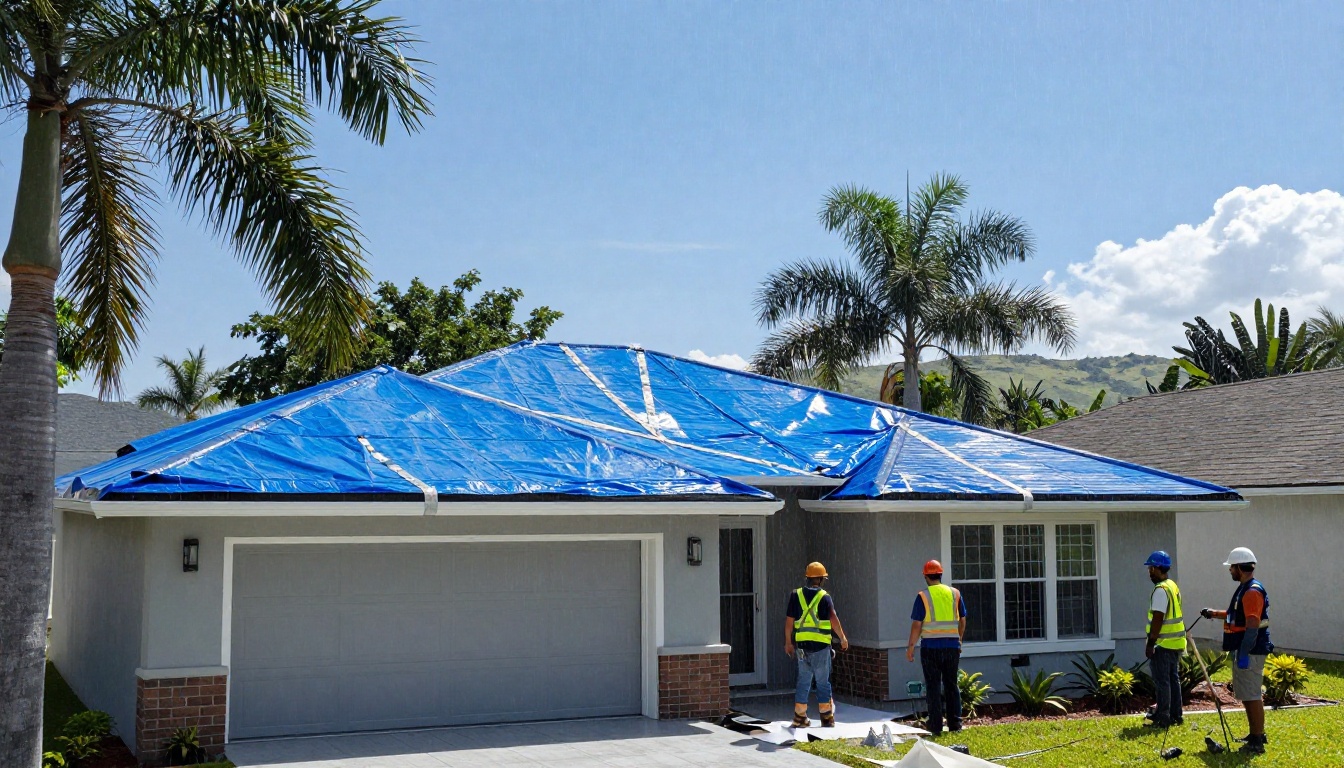The Roof Replacement Process in Cape Coral: A Step-by-Step Guide
The Roof Replacement Process in Cape Coral: A Step-by-Step Guide
Understanding Roof Replacement: Why It's Needed
Roof replacement is a significant decision for homeowners in Cape Coral , often driven by factors like the roof's age, storm damage, persistent leaks, or updates to building codes. In most cases, roofs last between 20 to 30 years depending on the materials used, but frequent exposure to harsh weather can shorten their lifespan. Storms, including hurricanes and tropical rains, are common culprits that cause structural damage or water intrusion, making replacement necessary.
Living in Cape Coral means dealing with a humid, subtropical climate that accelerates roof wear and tear. High humidity can lead to mold growth, while salt air corrodes certain materials over time. Additionally, the region’s susceptibility to hurricanes means roofs must withstand strong winds and heavy rainfall. These unique challenges make it essential for homeowners to regularly assess their roofs and address issues promptly before they escalate into costly problems.
Evaluating Your Roof: Signs You Need a Replacement
Visible signs of roof deterioration are often the first indicators that replacement may be necessary. Missing or curling shingles , cracked tiles, moss growth, and sagging areas are red flags that shouldn’t be ignored. These issues not only compromise your roof’s appearance but also its ability to protect your home from the elements. Addressing these problems early can prevent further damage to your property.
Sometimes, the warning signs aren’t as obvious. Rising energy bills could indicate poor insulation due to a failing roof, while persistent leaks might signal underlying structural issues. Insurance companies may also notify you if your roof is nearing the end of its usable life, especially after a major storm. Paying attention to these subtle cues ensures you stay ahead of potential problems and avoid emergency replacements down the line.
Choosing the Right Roofing Material for Cape Coral
In Cape Coral, popular roofing materials include asphalt shingles, clay or concrete tiles, metal panels , and flat roofing systems. Each option has pros and cons based on Florida's weather conditions. Asphalt shingles are affordable and widely used , while tiles offer durability and resistance to hurricane-force winds. Metal roofs excel in energy efficiency and longevity , though they tend to have higher upfront costs.
When selecting materials, consider factors like longevity, cost, and energy efficiency. Clay tiles can last 50 years or more but require sturdy support structures due to their weight. Metal roofs reflect sunlight, reducing cooling costs, but may dent in hailstorms. Local building codes also play a role, as some neighborhoods mandate specific materials for aesthetic consistency or safety compliance. Choosing wisely ensures your new roof meets both functional and regulatory needs.
The Importance of Hiring a Licensed Cape Coral Roofing Contractor
Hiring a licensed roofing contractor is crucial in Cape Coral , where strict regulations govern construction projects. Florida law requires contractors to hold valid licenses, carry liability insurance, and obtain permits for roof replacements. Working with unlicensed professionals puts you at risk of subpar workmanship and potential legal liabilities. Ensuring proper credentials protects your investment and guarantees adherence to local codes.
To find the right contractor, start by reviewing their experience in Cape Coral and reading customer testimonials. Certifications from reputable organizations, such as the National Roofing Contractors Association (NRCA), indicate expertise and professionalism. Don’t hesitate to ask for references or proof of insurance before signing a contract. Taking these steps ensures you partner with someone who understands the unique demands of roofing in this area.
Permitting and Approval: Navigating Local Regulations
Navigating the permitting process in Lee County involves submitting detailed plans, obtaining approvals, and adhering to specific timelines. Homeowners typically need to provide documentation outlining the scope of work, material specifications, and engineering calculations, especially for tile roofs. Applications are reviewed by local authorities to ensure compliance with zoning laws and safety standards.
Older homes or high-value properties may face additional scrutiny during the approval process. For instance, historic districts may impose design restrictions, while coastal zones might require enhanced wind mitigation measures. Understanding these requirements upfront helps streamline the process and prevents delays. Consulting with your contractor and local officials can clarify any uncertainties and keep your project on track.
Preparing Your Property for Roof Work
Before work begins, homeowners should take steps to prepare their property for roof replacement. Move vehicles away from the work zone to allow easy access for equipment and debris removal. Protect landscaping features like gardens and outdoor furniture by covering them or relocating them temporarily. Clearing pathways and ensuring safe entry points for workers minimizes disruptions and potential damage.
Contractors will also implement site protection measures to safeguard your property. This includes setting up barriers around the work area, securing loose items, and using tarps to catch falling debris. Proper preparation ensures the job proceeds smoothly while minimizing risks to your home and surrounding environment. Collaboration between homeowners and contractors sets the stage for a successful project.
Removing the Old Roof: What to Expect
Removing an old roof involves systematically stripping away existing materials, whether they’re shingles, tiles, or metal panels. Workers use specialized tools to carefully dismantle the roof without damaging underlying structures. The process can be noisy and messy, so patience is key during this phase. Once removed, all debris is sorted for recycling or disposal according to environmental guidelines.
Debris management is a critical aspect of roof removal. Contractors aim to recycle materials like asphalt shingles and metal whenever possible, reducing landfill waste. Proper disposal practices ensure compliance with local regulations and promote sustainability. After cleanup, the site is ready for inspection and repairs, paving the way for the installation of your new roof.
Inspection and Repairs to the Roof Deck
A thorough inspection of the roof deck is essential before installing new materials. Workers check for signs of rot, warping, or water damage in the wood sheathing and framing. They also examine nailing patterns to ensure proper fastening and stability. Identifying and addressing these issues early prevents future complications and extends the life of your new roof.
If damage is found, contractors will repair or replace affected sections, reinforcing the structure as needed. Hurricane-prone areas like Cape Coral benefit from extra fortification, such as adding hurricane straps or upgrading fasteners. Strengthening the roof deck enhances its resilience against extreme weather, providing peace of mind for homeowners.
Installing the New Roofing System
The installation process begins with laying the underlayment, which serves as a moisture barrier beneath the new roofing material. Crews then seal penetrations like vents and chimneys, install flashing to prevent water intrusion, and begin applying the chosen material. Whether it’s shingles, tiles, or metal panels, each layer is meticulously secured to meet manufacturer specifications and local codes.
Optional upgrades, such as improved ventilation systems or skylights, can enhance comfort and energy efficiency. Special attention is given to waterproofing and hurricane protection, ensuring the roof performs well in Cape Coral’s challenging climate. By following best practices and incorporating modern innovations, contractors deliver a durable, long-lasting solution tailored to your needs.
Final Inspection and Cleanup
Once the new roof is installed, it undergoes a final inspection by city or county officials. Inspectors verify that all work complies with local building codes, checking for proper installation techniques, secure fastenings, and adequate ventilation. Passing this inspection confirms that your roof meets safety and quality standards, giving you confidence in its performance.
After approval, contractors complete a thorough cleanup of the work site. Debris is removed, and any remaining dirt or dust is cleared from your property. A final walk-through with the homeowner ensures satisfaction and addresses any questions or concerns. This meticulous approach leaves your home looking pristine and ready for years of reliable service.
Understanding Roof Replacement Costs and Financing
The cost of roof replacement in Cape Coral varies based on several factors, including materials, labor, permits, and necessary repairs. On average, homeowners can expect to pay between $5,000 and $15,000, depending on the size and complexity of the project. High-end materials like clay tiles or premium metal systems increase expenses, while simpler options like asphalt shingles remain budget-friendly.
Financing options are available to ease the financial burden. Some contractors offer payment plans, while others partner with lenders to provide low-interest loans. Homeowners should also explore insurance claims if their roof was damaged by a covered event. Understanding these avenues helps you plan effectively and make informed decisions about your investment.
Maintaining Your New Roof
Regular maintenance is key to maximizing the lifespan of your new roof. Schedule annual inspections to identify and address minor issues before they worsen. Cleaning gutters, removing debris, and trimming overhanging branches are simple tasks that contribute to better performance and longevity.
Most roofing materials come with warranties that cover manufacturing defects and premature failures. Familiarize yourself with the terms and conditions, including what’s excluded and how to file a claim. Proactive care not only preserves your roof’s condition but also prepares you to handle future repairs or storm-related events with confidence.
Frequently Asked Questions
Do I need a permit for roof replacement in Cape Coral?
Yes, a permit is required for roof replacement in Cape Coral. Permits ensure compliance with local building codes and safety regulations. You can apply through Lee County’s permitting office, and your contractor can assist with the application process.
How long does a roof replacement typically take?
A typical roof replacement takes about one to two weeks, depending on the size of the roof, material type, and weather conditions. Larger projects or unexpected delays may extend the timeline.
Will my home insurance cover roof replacement?
Insurance coverage depends on your policy and the cause of damage. Many policies cover roof replacements resulting from covered perils like storms, but age-related wear and tear is usually excluded. Contact your insurer to confirm details and initiate a claim if eligible.
What should I do to prepare my home and yard?
Prepare your home by moving vehicles, protecting landscaping, and clearing pathways for workers. Cover fragile items and ensure pets are safely indoors during the project.
Can I stay home during roof replacement work?
While staying home isn’t mandatory, many homeowners prefer to monitor progress. Contractors communicate daily schedules and safety protocols, allowing you to feel comfortable and informed throughout the process.
Conclusion
Replacing a roof in Cape Coral involves multiple steps, from evaluating its condition to choosing materials, navigating permits, and completing the installation. Each stage requires careful planning and execution, particularly given the region’s unique climate and regulatory landscape. Hiring qualified professionals and adhering to proper procedures ensures a smooth and successful outcome.
Taking action now can save you time, money, and stress in the long run. Schedule an evaluation with a licensed contractor today to assess your roof’s condition and discuss replacement options. Investing in a quality roof not only enhances your home’s safety and value but also provides lasting peace of mind in Cape Coral’s dynamic environment.
Call to Action: Ready to get started? Reach out to trusted local contractors , gather quotes, and take the first step toward securing your home with a durable, beautiful new roof. Your future self will thank you!




